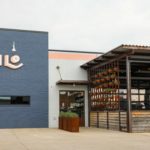Milo All Day provides unique farm-to-table experience that dishes out great food and connection in every season.
Story by Erianne Lewis
Photos by Logan Skains & Mallory Harris
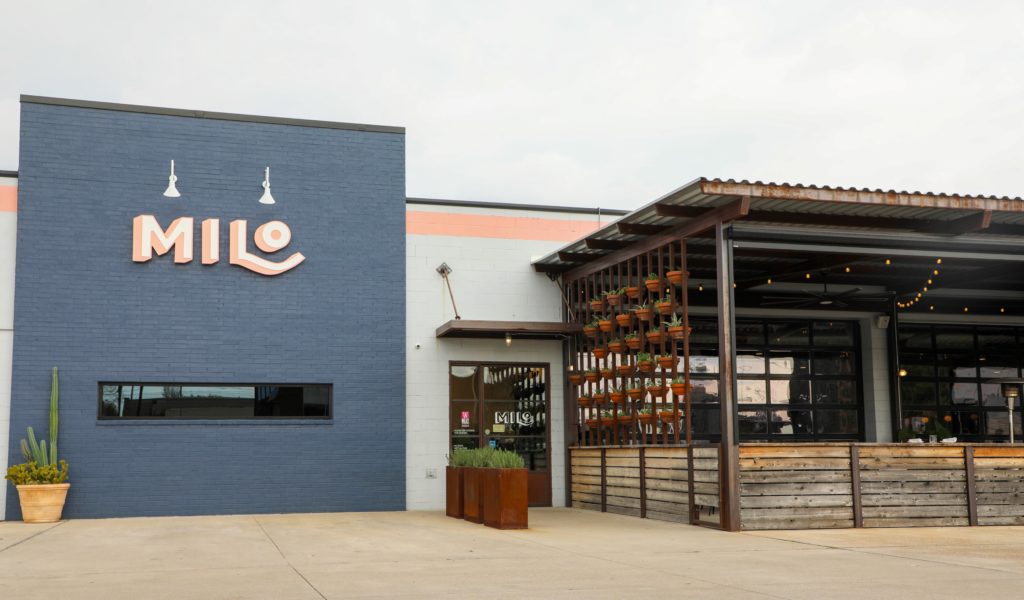
What used to be a automotive repair shop, Milo All Day now serves customers for brunch, lunch and dinner throughout the week.
When you walk into Milo All Day, you are sure to get a unique dining experience, where everything is specifically designed down to the music playing at that time of day. This, among other things such as location and ingredients, were very important to head chef and owner Corey McEntyre when opening the full-service restaurant.
“Food is really important to a restaurant, but so is vibe and atmosphere,” McEntyre said. “The sense you get from the staff like, ‘Hey we want you to be here, we are happy you are here, we want you to come back. How well did we take care of you?’ At the end of the day, the food could be amazing … but if you feel like a bother to the waiter, that’s the worst.”
McEntyre, who developed his love of cooking in Georgia when he was young, said he found connection with the people he loved through this simple act. Since he grew up around his grandparents’ gardens, which were often full of vegetables, he saw firsthand how local ingredients can play a role both inside and outside the kitchen.
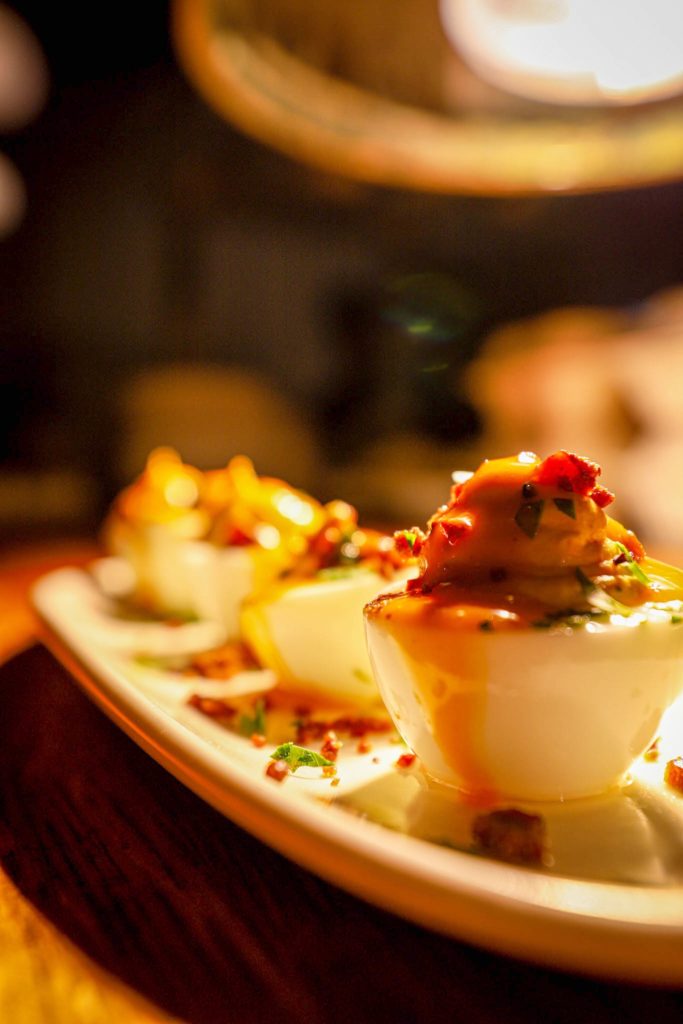
As a precursor to the meal, Milo offers an appetizer of deviled eggs topped with a hot sauce vinaigrette and small pieces of bacon.
As an adult, he’s taken this childhood experience and created a foundation of fresh ingredients in all his dishes.
“I think having those products and that food, when it was [at its] best, is so important,” McEntyre said. “Not only because it tastes better, but also for the local economy mostly. You keep dollars in people’s pockets that are here and around you. You help cultivate your own local economy by buying those types of products.”
Putting words into action, McEntyre sources some of his products locally from farmers such as Glynn and Janice Lawhon with Lawhon Spring Farms in Waco.
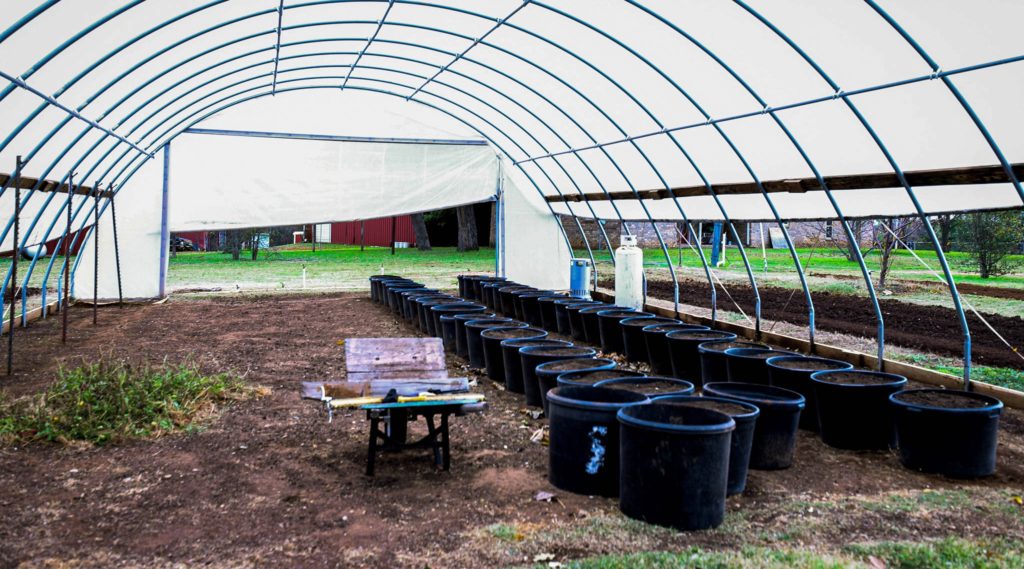
While Lawhon Spring Farms isn!&t massive, the ingredients they produce stand out in different ways through Milo meals. As the seasons change and new crops get put in, there’s constant change happening at the farm.
With four acres of land currently ready to be cultivated, Glynn Lawhon’s family has been farming for almost four generations. Today Lawhon Spring Farms sends ingredients such as onions, squashes, potatoes, tomatoes, beets, cucumbers, carrots and green beans to Milo All Day. Glynn Lawhon said Milo takes everything they raise and tries to utilize it where they can. But because the dry weather conditions this year greatly affected the growing of the crops this season, they have fewer items than usual, according to the Lawhons. However, they are already preparing for next season’s crops.
“We prefer to have it all planted [a month or so] before May, because if the weather is just right and we get the crop in, then we’re picking in April. We like to get started early,” Janice Lawhon said.
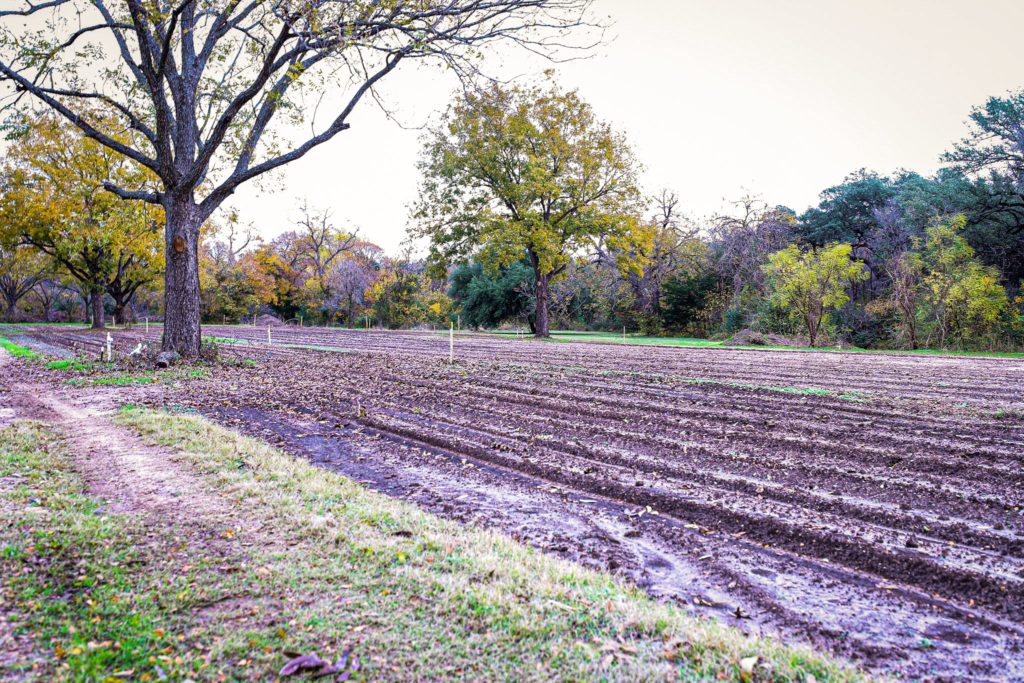
The same plot of land that’s been in Glynn Lawhon!&s family for almost four generations still grows ingredients that Milo All Day uses in it!&s menu.
Milo also gets items such as grits, flour, crackers and sorghum from Homestead Heritage in Waco. Known for its craftsmanship and its large farming area, Homestead Heritage serves many communities in the Waco area. McEntyre also works with Farm-to-Table distribution company as well, which sources products from all throughout Texas and distributes them to restaurants, aiming to support both local farmers and large distributors.
“Local food was always super important,” McEntyre said.
McEntyre didn’t go to culinary school, but he graduated from Harding University with a degree in culinary arts and nutrition.
From there he lived in Nashville for some time, but ultimately moved to Waco in 2015. That same year, he opened Milo Biscuit Co., two food trucks placed at Magnolia Market and the Waco Downtown Farmers Market. Serving the Waco population, he grew to the point of needing a permanent site.
And so Milo All Day opened in May of 2018. It was a difficult transition from food truck to storefront, McEntyre said.
“It has its own problems, but you know it was only four-to-five, six people that worked for us [in the food truck]. Now we have like 46 people that work for us,” McEntyre said. “I think the scale going from food truck to restaurant was hard, but just knowing how to manage that and make sure we have good systems and processes in place [was important].”
McEntyre said before opening the restaurant he placed a high priority on the location. Being intentional with every other aspect of the restaurant, he wanted to be surrounded by growing businesses in downtown Waco in hopes that other businesses would follow suit. And they did, as there are now multiple business in the surrounding area. However, he wanted to remodel an already existing building instead of starting from the ground up.
“If we are buying these kinds of intentional products, we shouldn’t be building new stuff. We should be reusing old stuff,” McEntyre said.
With this in mind, McEntyre landed on their current location at 1020 Franklin Ave. It’s a slightly peculiar building for a restaurant, with the previous spot being held by Big Green Automotives. However, with the help of local builders who renovated the space, McEntyre found the perfect spot for his restaurant where he could see his passion grow.
McEntyre said he feels Milo “struck a chord in Waco,” because they are more than just a facilitator for food, they are an entire dining experience. As that includes locally sourced ingredients, McEntyre said the farm-to-table phrase is not all-encompassing, but rather he would use the words “local” and “seasonal” to describe where his ingredients originate and the harvesting process.
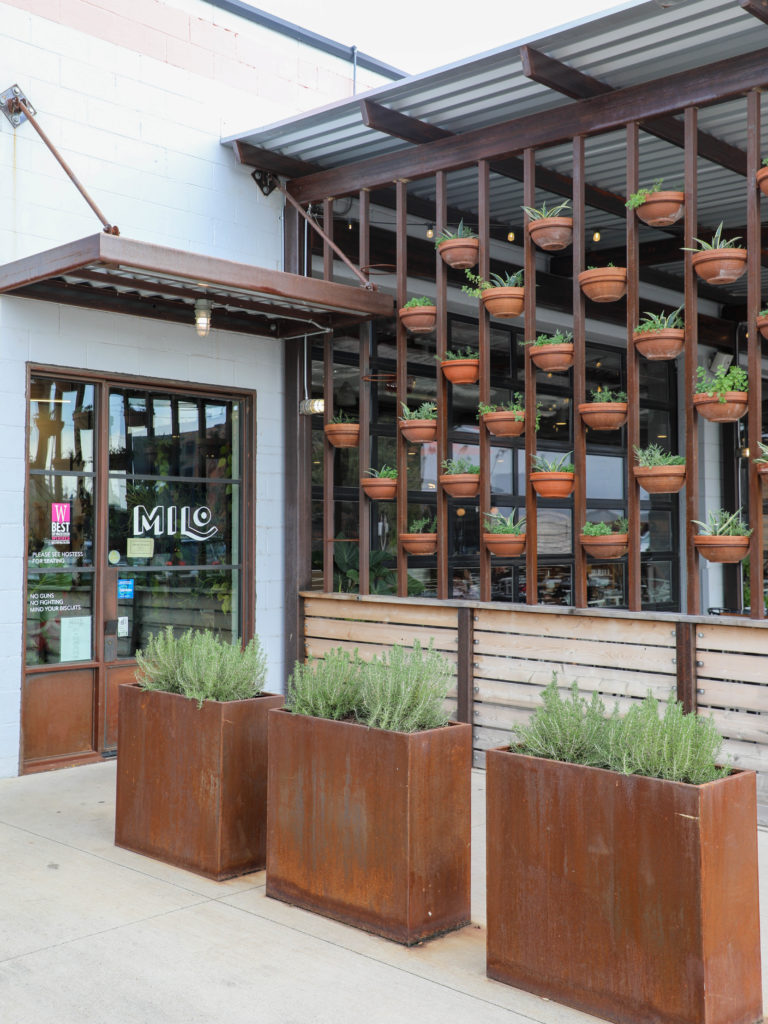
Setting the atmosphere from the beginning, Milo is full of green plants surrounding their customers. Whether they!&re in small plant boxes or they!&re massive leaves stretching from the ceiling, the greenery at Milo is hard to miss.
“I think that farm-to-table, local, seasonal, whatever you want to call it, it gets expressed a lot of different ways for us,” McEntyre said. “It’s the idea that I want to be able to look the person in the eye and be like, ‘You raised this animal, this squash, these blueberries, these herbs, whatever, to the best of your ability.’”
McEntyre said he curates his menu based on things he likes and wants to incorporate into his restaurant. Not everything added to the menu is a huge hit, he said. It’s like a moving target. It takes time to curate the items, but the ingredients are still the foundation, McEntyre said.
“If you want to make a great dish, you should start with great ingredients,” he said.

